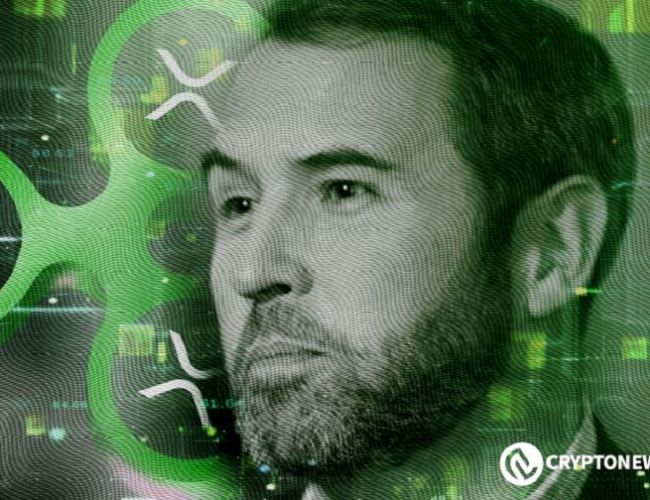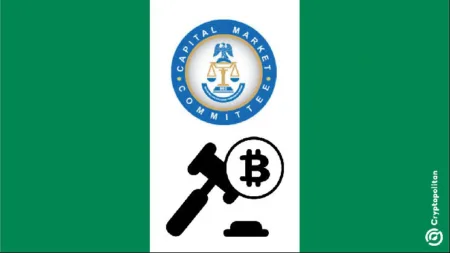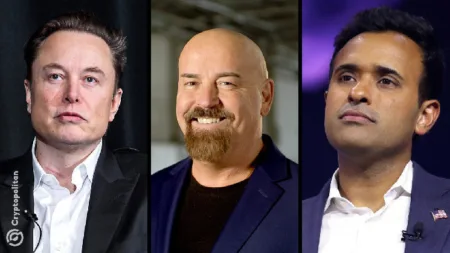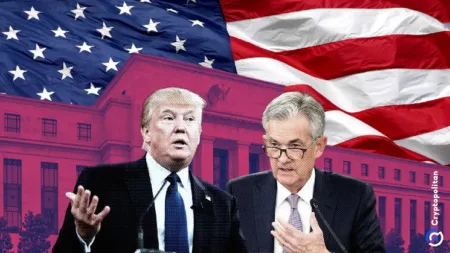- Ripple’s Brad Garlinghouse reveals his “de-banking” experience, reflecting regulatory pressures on notable crypto figures.
- Operation Chokepoint 2.0 highlights banking restrictions as U.S. regulators allegedly pressure banks to limit services for crypto leaders.
- Garlinghouse sees U.S. crypto policy changes ahead, encouraging optimism and support from both political sides for crypto growth.
The CEO of Ripple Brad Garlinghouse talked about his experiences with “de-banking,” whereby he blamed the practice on regulatory constraints on the cryptocurrency sector. Garlinghouse talked about how, after 25 years with Citibank, he was given just five days to transfer his money out of his account. Citibank reportedly attributed this decision to his status as a prominent crypto figure.
JUST IN: 🇺🇸 Coinbase States The FDIC Advised Banks To NOT Provide Crypto Services Over 20 Times!
Could this be an explanation as to why Ripple CEO @bgarlinghouse was debanked after 25 years with Citibank…
“I had an account for 25 years, they said you have 5 days to move your… https://t.co/gIdO3rPBO3 pic.twitter.com/otMYsa1h7k
— Good Morning Crypto (@AbsGMCrypto) November 2, 2024
Operation Chokepoint 2.0: A Threat to Crypto Banking?
Garlinghouse’s situation is an example of the problems Bitcoin pioneers face when trying to access banks in the US. He described these difficulties as a component of “Operation Chokepoint 2.0,” in which conventional banking institutions are purportedly under pressure to restrict cryptocurrency services.
According to Garlinghouse, banks are distancing themselves from notable crypto figures due to regulatory scrutiny. Consequently, even seasoned industry leaders risk being excluded from banking services.
Garlinghouse tore into the aggressive approach of the U.S. Treasury and Office of Comptroller of the Currency to cryptocurrency, showing this trend is not limited to the actual actions of the SEC. He said such a policy denies access to the conventional banking system to the cryptocurrency sector as part of the wider legisto-competitive effort to undermine the sector.
Upcoming Elections and Hopes for Crypto Policy Reform
Despite this challenging landscape, Garlinghouse remains optimistic. He believes that regardless of the outcome of the next U.S. presidential election, the crypto industry will see policy improvements.
He noted that both parties have shown signs of potential support, with Republican candidate Donald Trump positioning himself as a “crypto president,” while Vice President Kamala Harris has historically shown a pro-technology stance.
Garlinghouse also expressed confidence in the long-term outlook for crypto in the U.S., even predicting that regulatory challenges today will be seen as minor hurdles. He emphasized that a more favorable regulatory framework could attract crypto firms back to the U.S., encouraging those who seek stability and clarity.
Besides, Garlinghouse believes that an XRP exchange-traded fund (ETF) will eventually launch, which is another milestone for Ripple. For now, he advises startups to consider incorporating outside the U.S. due to current regulatory risks.
Read the full article here









